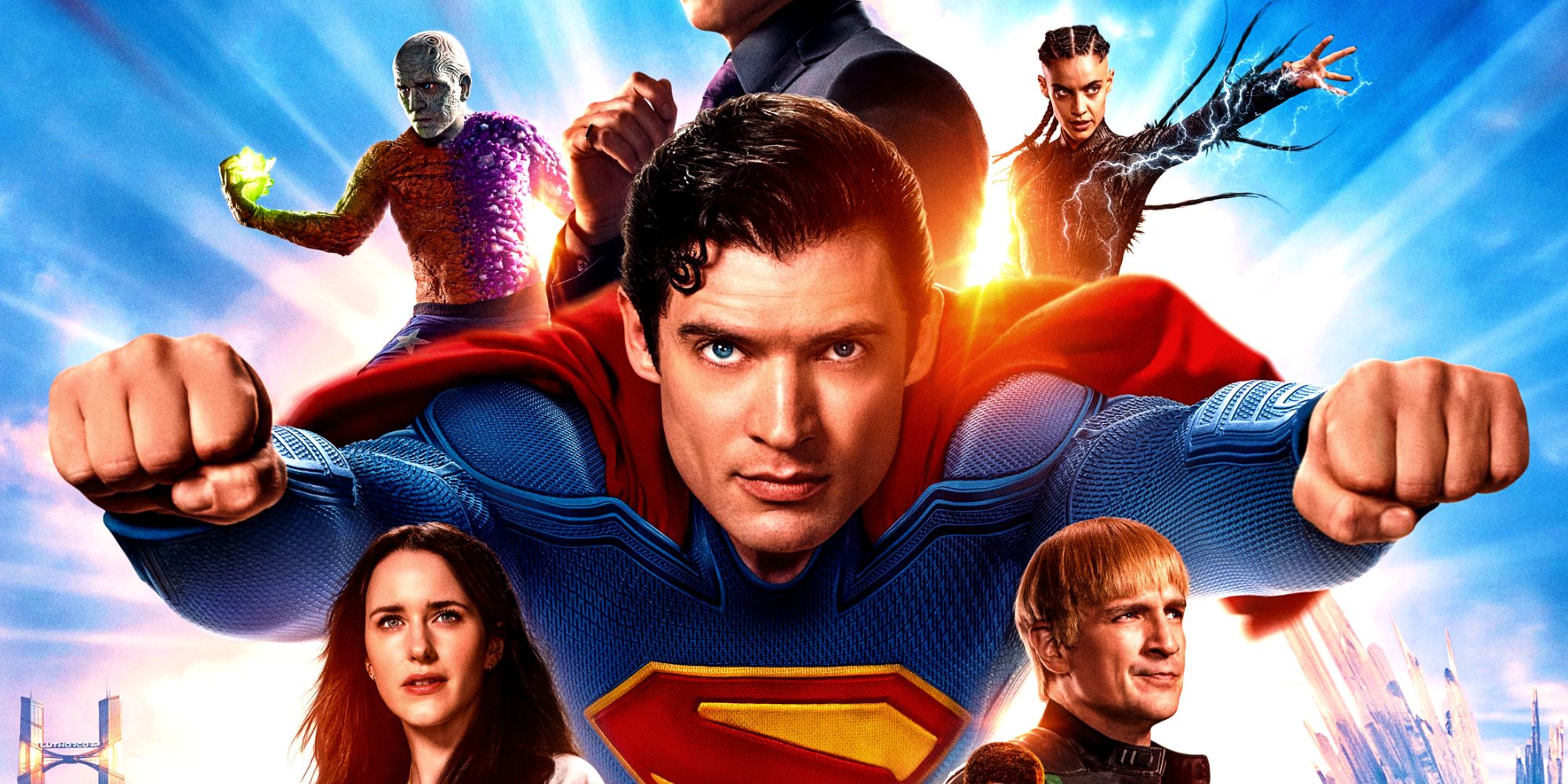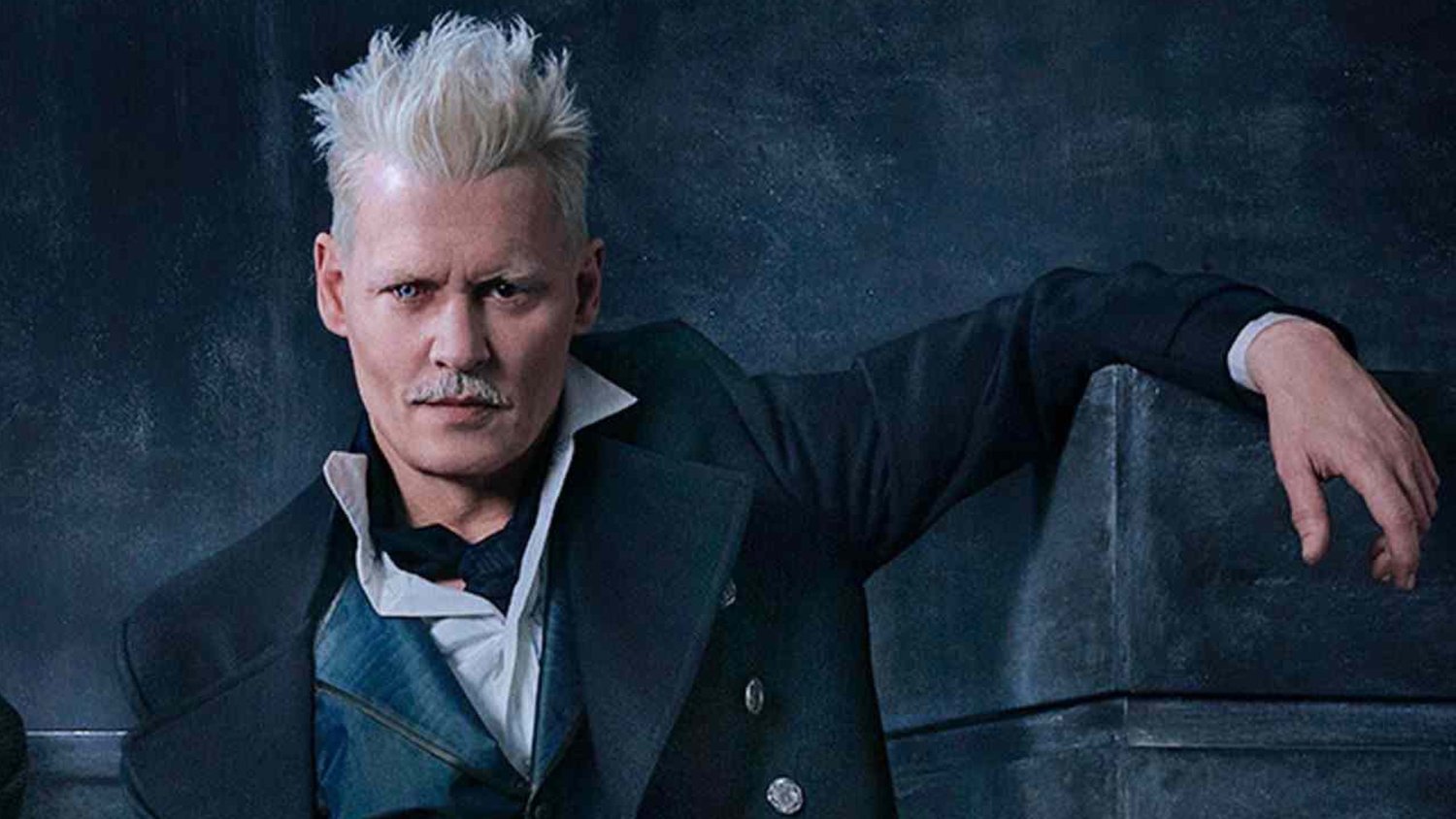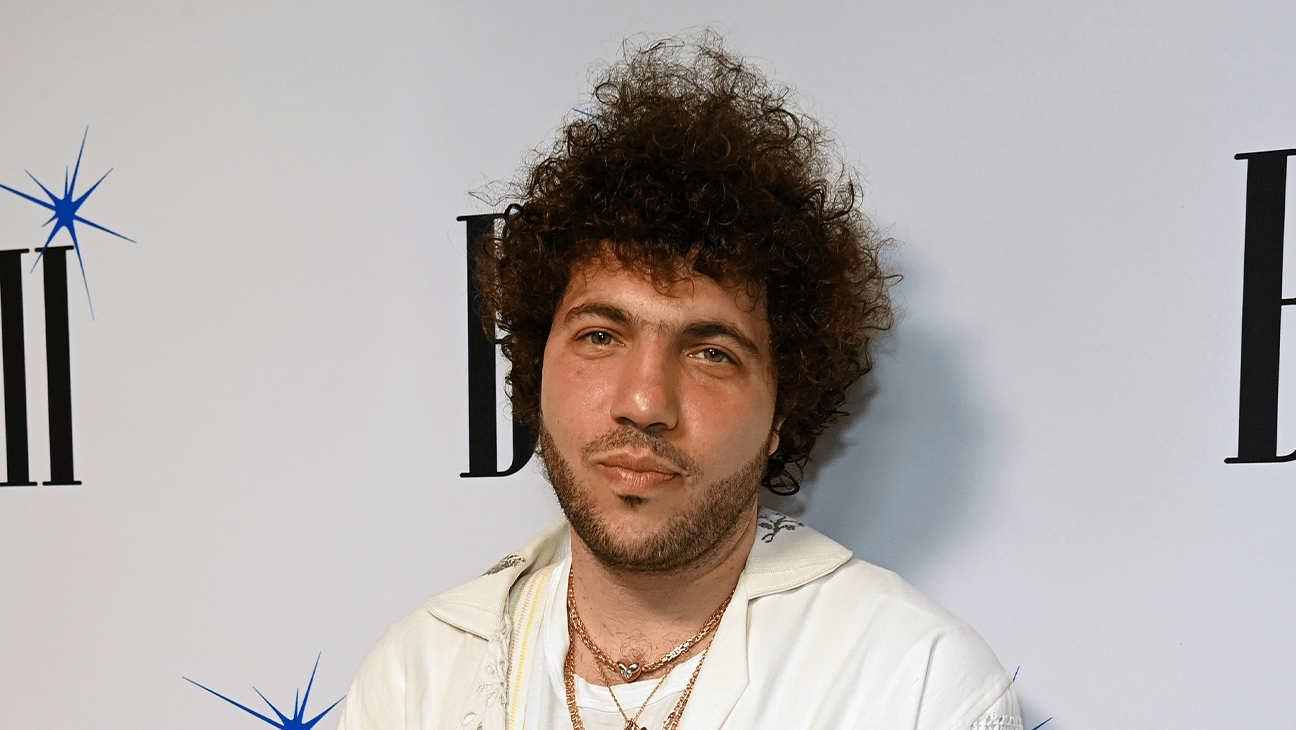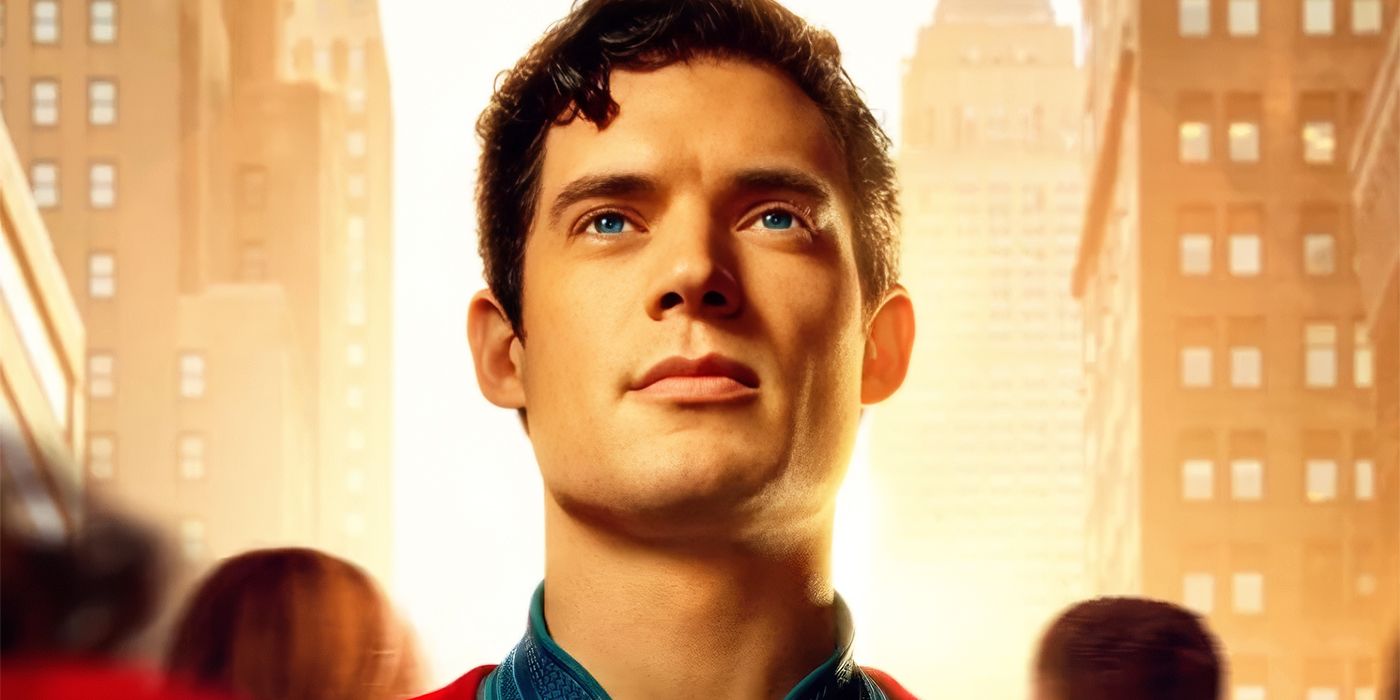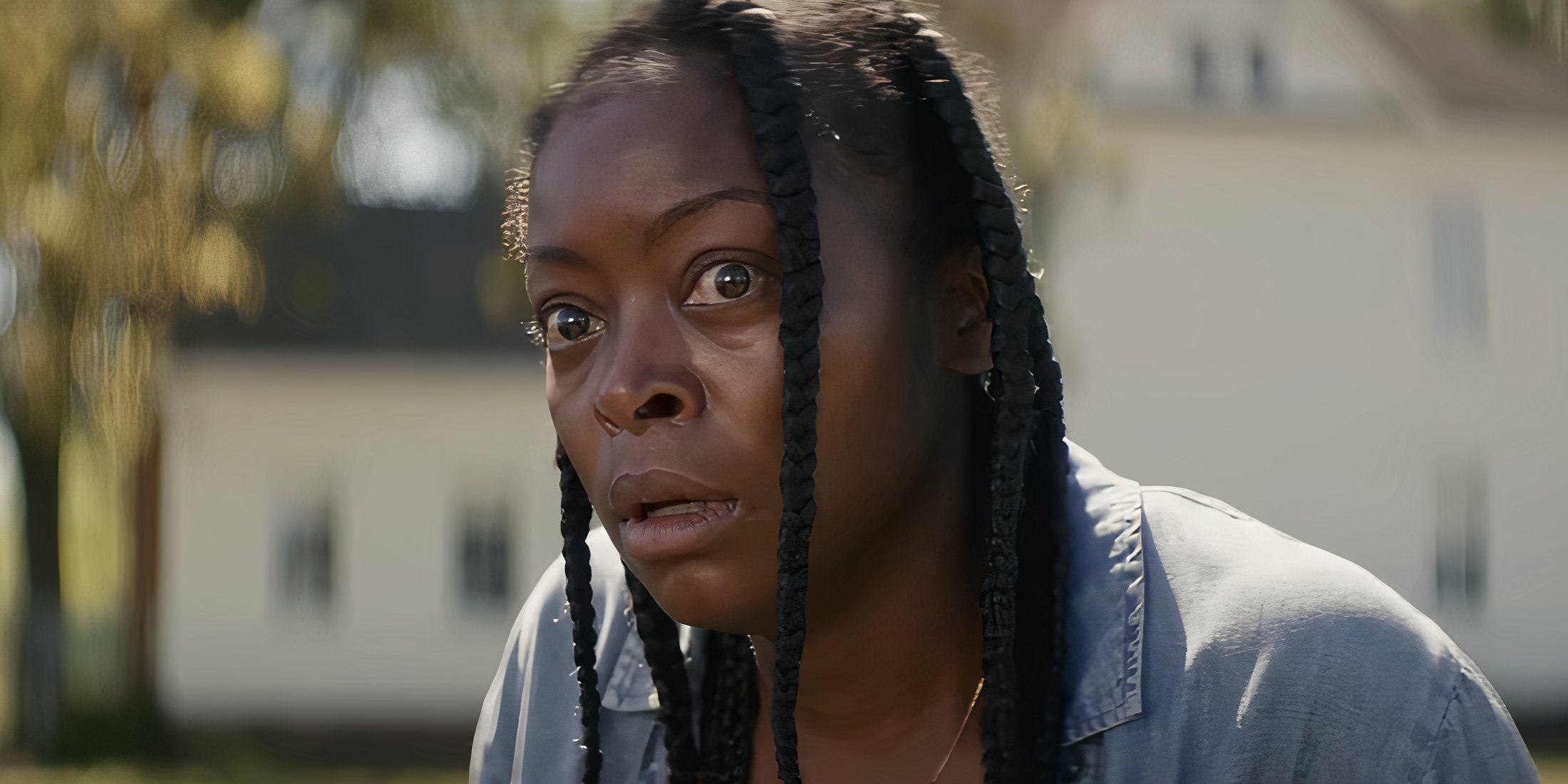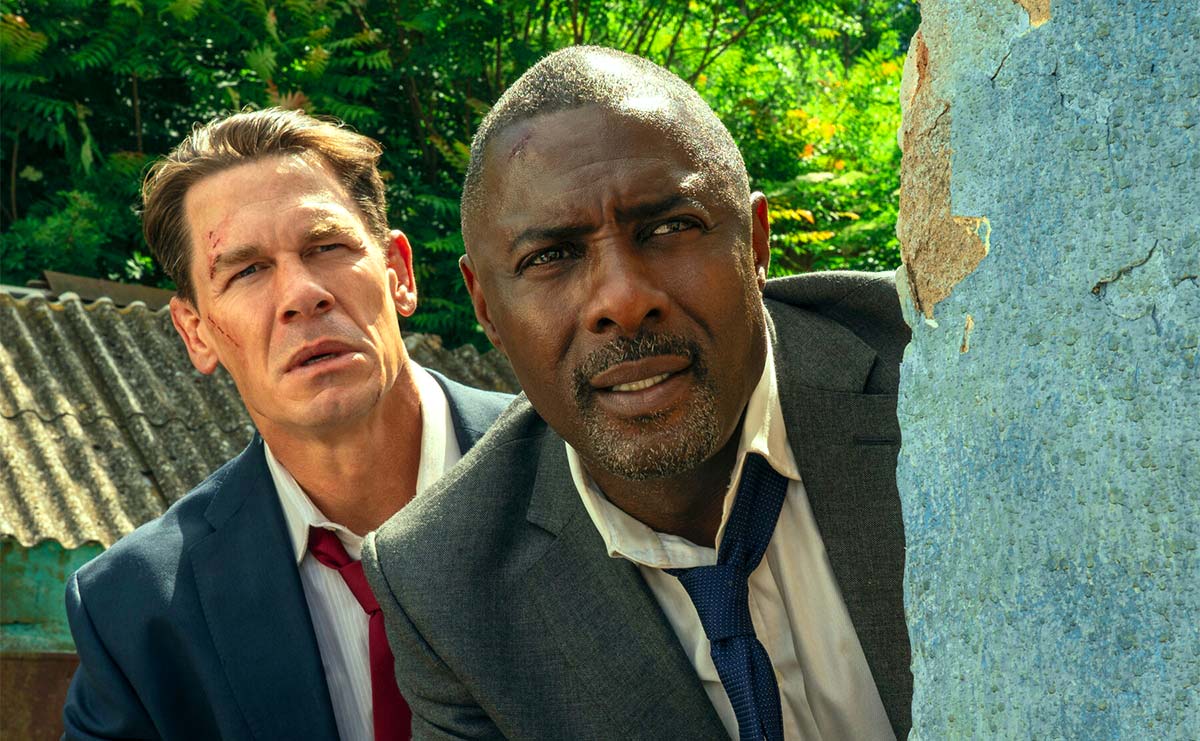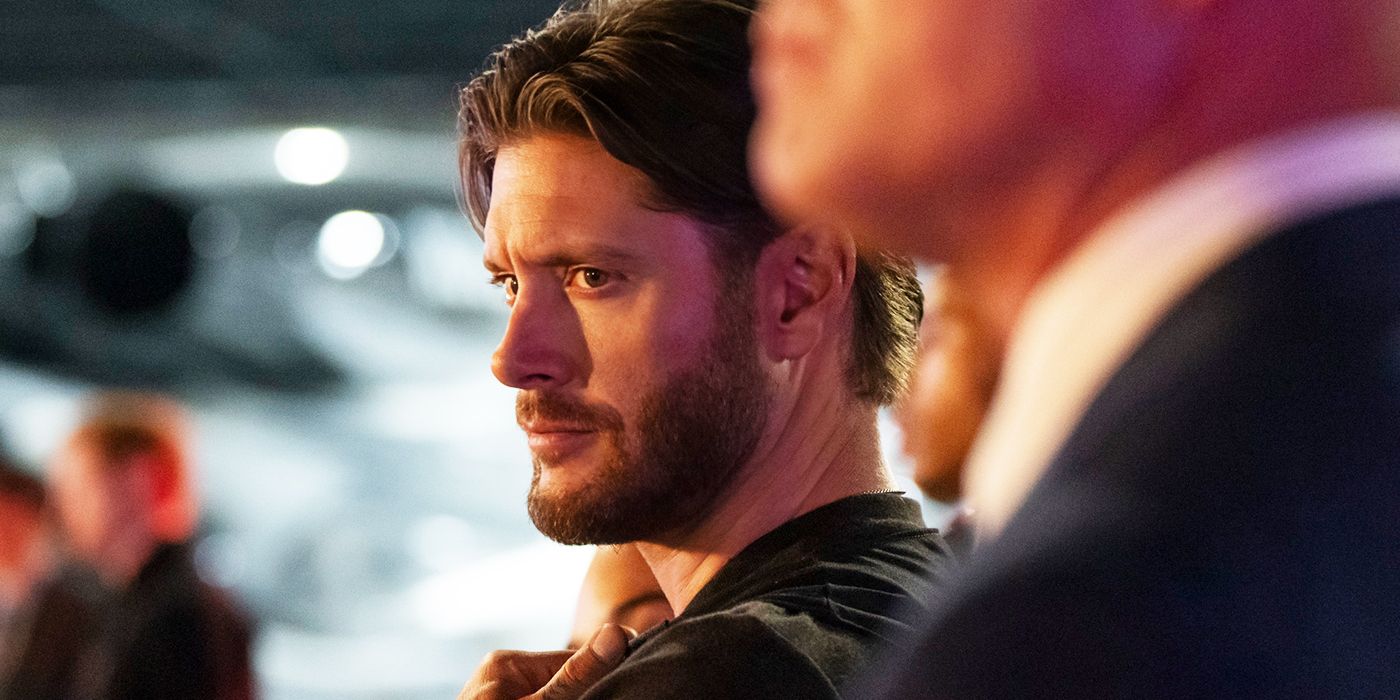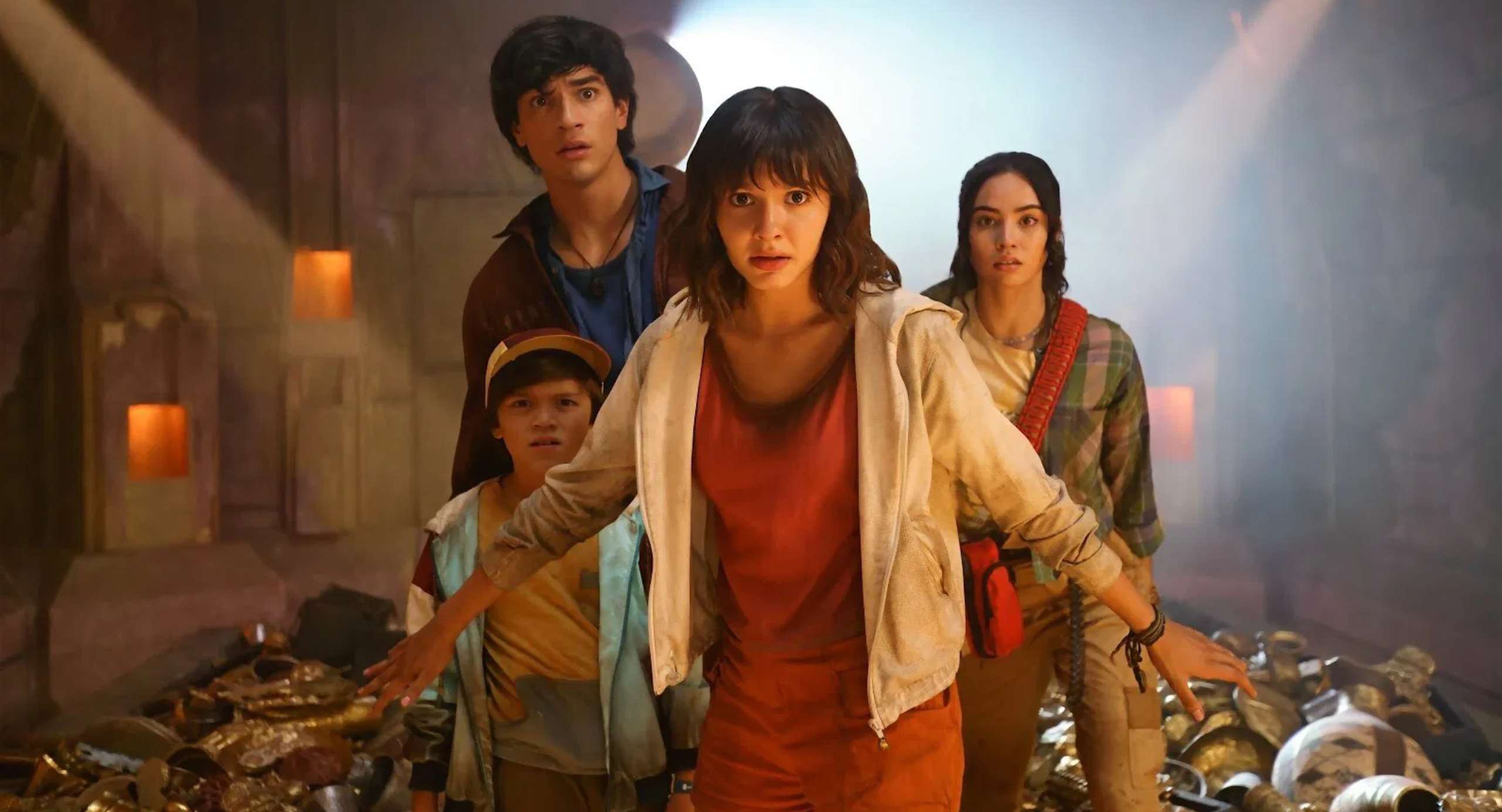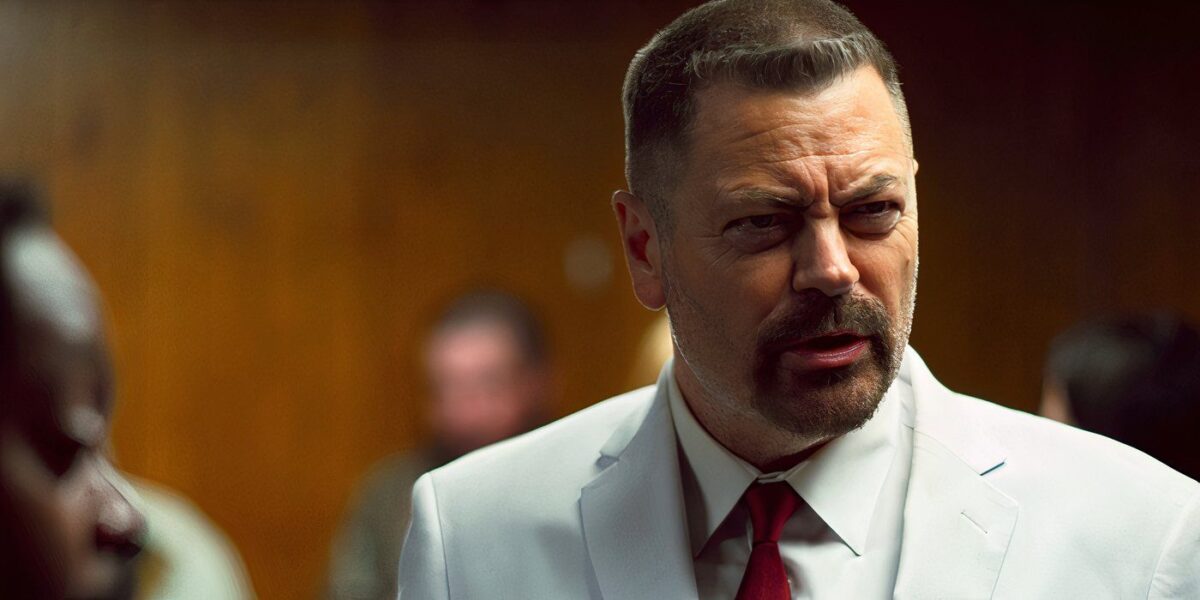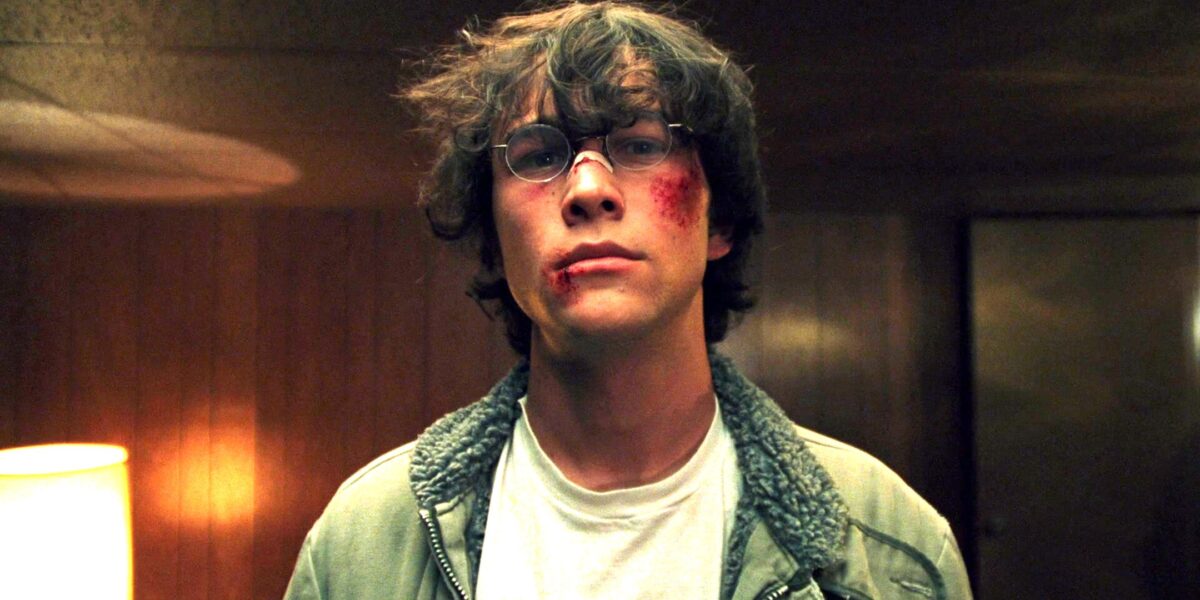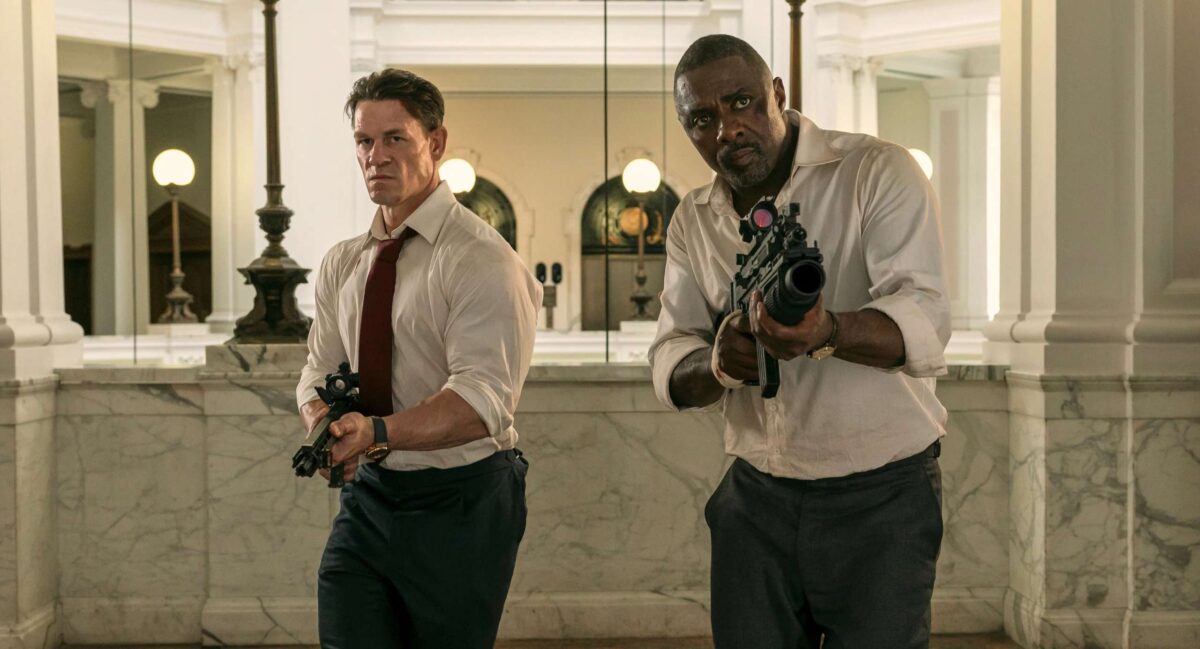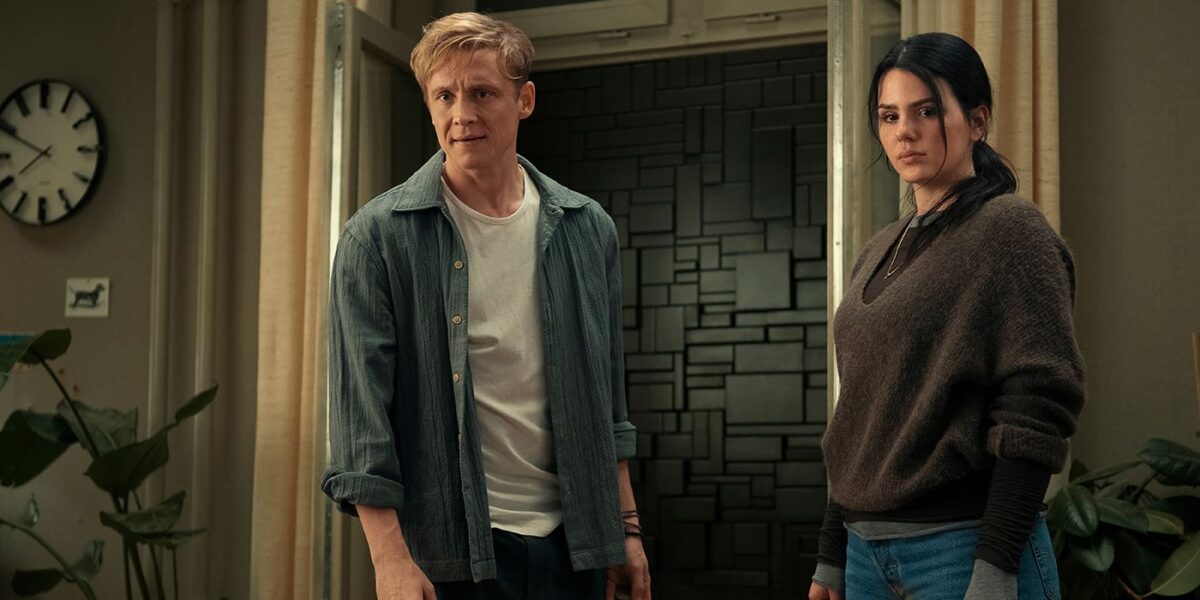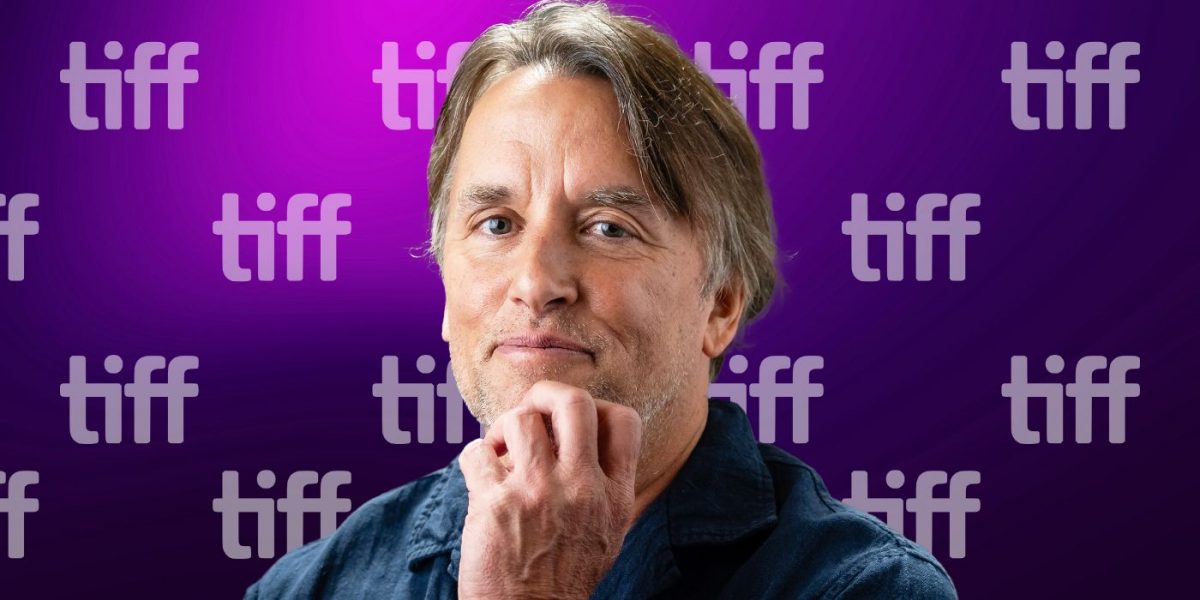
Richard Linklater on ‘Hit Man’ & Glen Powell’s Chemistry with Adria Arjona
Sep 15, 2023
The Big Picture
Glen Powell stars in Hit Man, a dark comedy directed by Richard Linklater, showcasing his comedic range as a timid philosophy professor turned undercover hitman. Linklater discusses reuniting with Powell and their collaboration on the story, as well as their foray into the film noir genre and screwball comedy. The film was made independently on spec, and they are currently looking for a distributor, hoping for options that will be best for the movie’s success.
Continuing his silver screen stride, co-writer Glen Powell stars in Hit Man, the latest from filmmaker and Academy Award-nominee Richard Linklater (Boyhood). To discuss his dark comedy, Linklater stopped by Collider’s studio at the Cinema Center by MARBL at this year’s Toronto International Film Festival and sat down with Editor-in-Chief Steve Weintraub.
Far removed from his suave Top Gun: Maverick role, Powell flexes his comedic range as Gary Johnson, a timid philosophy professor who moonlights as a staff investigator for undercover cops. When one of the officers impersonating a hitman is placed on leave, it’s Gary’s time to shine. Because he most resembles the officer, Gary is asked to step in for the operation, and it’s undercover as a killer that this professor blossoms. While meeting with a possible client, the charismatic hitman, “Ron,” hits it off with Madison (played by Adria Arjona), a woman looking for a way to escape her abusive relationship. When Gary steps out of bounds and starts meeting up with Madison, he begins to fumble his juggling act with all his new personas, and someone truly does wind up dead.
During their sit-down, Linklater discusses reuniting with Powell for this foray into the “film noir genre and the screwball comedy,” how they landed on this idea, and collaborating together on the story. He talks about the outrageous looks Powell dons for the movie, how a coffee date signaled Arjona was their perfect Madison, and the more technical side of movie magic. Linklater also touches on the impact of Dazed and Confused, more Before Sunrise films, and “shapeshifting” in the editing room. For all of this and more, check out the full interview in the video above or the full transcript below.
Image via Photagonist at the at Collider TIFF Media Studio
COLLIDER: You’ve made a number of movies, some get better reviews than others. What is it like for this one where there’s just universal acclaim?
RICHARD LINKLATER: Well, in the big scope of things, it’s better to be loved than not loved, probably. It’s more gratifying in the moment, but long term, who knows? In the moment, it’s always better.
You’re one of these people who has done so many movies over so many years, and some are now considered classics, like, for example, Dazed and Confused, one of my all-time favorite films. It’s been 30 years now, but it’s one of those films that’s really stood the test of time. When did you realize, “Oh, wait a minute, this is really resonating with people and might be something special?”
LINKLATER: I thought that the first time audiences were seeing it, but you don’t really know. About a year later, it was still playing. Back then they still had midnight screenings, remember? And it played a full year at certain theaters, a little bit of the theatrical run for however many weeks, and then it kicked to midnight, and it played for a year as a midnighter, and they’re talking about, “People come in, and you can smell the reefer smoke in the theater. It’s like a party film.” I was like, “That’s interesting.” So, I don’t know. You hear things, but you’ve moved on to your next film by then.
Image via Focus Features
We’ve talked about this, I think for Apollo 10½ [A Space Age Childhood], but one of the many things that you are a master of is that you have this insane ability to remember things and apply those memories into your work. For people that don’t realize, can you talk a little bit about that? Because with Dazed, with so many of your films, it’s like you’ve been transported back in time to that exact moment, and little random things that most people don’t remember are included.
LINKLATER: Yeah, I guess everyone’s mind works differently. I always had this kind of recall memory of little details. It’s what to do with those exacting memories that clutter up your consciousness. I think a lot of novelists have that where they’re describing the day and every detail. Some people kind of have that recall. I think I have that, and I just use it in certain ways, and not on every film, but certain films that are kind of that in that vein of personal and autobiographical. Oftentimes, I really have tried to say, “Okay, I’m recreating a moment in time or a place in time,” and it’s always something fun to strive for. I’m doing that sometimes not on a physical level, like, maybe not the time period and thing, but on a psychological level, like something that happened to me transported to another place in time. It’s always personal, you know?
When you see someone like me wearing this T-shirt, which is a complete bootleg, do you get upset, or you were like, “Oh, that’s actually pretty cool?”
LINKLATER: [Laughs] I have to go, “That’s actually pretty cool!” I mean, I make T-shirts, or I used to make a lot of them. I was like, “Oh, that’s cool.” It’s easier now, you just get a little frame grab and do a thing. But no, that’s cool. Of course it is. It’s been a long time since I was in Vienna shooting that movie [Before Sunrise], coming up on 30 years.
100%. Do you enjoy when people ask you, “Will there be more?”
LINKLATER: Yeah. That question begs itself when you do a series. We never got asked that after the first film. No one ever asks, “Are you gonna do another?” No one. [Laughs] But after we did two, then that question. Then do three, yeah, that question. But we totally missed our nine-year window, so I don’t know. No plans currently, but hopefully it’s a long life.
Image via Columbia Pictures
So Hit Man’s fantastic. There’s so much to talk about, but let’s get into the fact that you worked with Glen when he was like 14 or something.
LINKLATER: 15 or 16, he was in high school.
Yeah, and you never know what’s gonna happen, and then all of a sudden… Talk a little bit about how you made this with Glen and the origins of the story.
LINKLATER: I think anyone will tell you the most rewarding, special thing about doing what we do and being able to do this over years is the long-term relationships, to just see people grow up and see people change, people you work with or know, and it’s been fun to see Glen. He’s significantly younger than me, but I worked with him when he was a teenager on Fast Food Nation. [It was] just a small part, but I cast him amongst a lot of teenagers, like, “That guy’s interesting,” but he’s 15 or 16 or whatever. And then what felt like not many years later for me, but for him are a lot of years later, let’s say 16, he comes in on Everybody Wants Some!!, and I was like, “Oh wow, that guy. He grew up. He became Glen Powell.” The Glen Powell we know today developed in there, and sure enough. It wasn’t like he had some yellow brick road, he really worked hard, he struggled in LA, he did all the things you have to do to persist in an acting career. He did all that, and he was just fully formed. We had so much fun on Everybody Wants Some!! and then he came in and did a one-day cameo for me on Apollo 10½, and that was fun.
Over the pandemic, he called me up with this article he had read, and I was like, “Yeah, I read that a long time ago. I do know that story from Texas Monthly,” and then we just started collaborating on it. Glen’s like the greatest guy. He’s an ideal collaborator, like super smart, super funny. All we do is laugh and make each other laugh and kind of keep pushing each other, too. So, I think this thing reflects both of our greatest hits, maybe, to kind of put our sensibilities together and make this work. And I like collaborating with the actors, too. That’s why I work with Ethan [Hawke]; he’s a future actor, and I’m a future director, but at this moment, we’re screenwriters, we’re conjuring this movie together. I’ve done that with other actors, like I was saying. Ethan and Julie [Delpy], for instance, and Glen, such a great creative partner, just really fun.
Was this a tough project because I believe the film is for sale here?
LINKLATER: Yeah, we did this on spec. We didn’t have a corporate parent, no one was financing us. We did this pretty independently. It’s kind of a strange film on paper, you know? It’s a hybrid. “Well, what is this?” People didn’t totally get it, so we did it. We got it done old-school, and yeah, we’re looking for a distributor.
I am very confident that this will be sold.
LINKLATER: [Laughs] Yeah, hopefully to the right place.
Image via Collider
It’s a question of, are you guys looking for a big theatrical push? Are you looking for just streaming? Those kinds of questions become where it could end up.
LINKLATER: Yeah, I don’t know. It’s good to have options. We’ll just see what comes at us. I don’t think I’ve been in this position before, or not in the modern era where I’ve had to make certain decisions. We’re at a unique time, I guess. But let’s hope we have options. That’s what you want in this world. Whatever is best for the movie, you know?
Like I said, though, the fact that it got such good reviews and everyone is so positive. So, with making an indie like this, how long did you have to shoot it?
LINKLATER: You know, I’m used to that. Not as long as you would like. [Laughs] You don’t have the schedule or the budget, but you make it work. You just grind. We never were not working on this. We’d work all weekend, we’d finish shooting in the day, we’d work that night on this. There were so many nuances we were trying to get perfect, and so what you don’t have in money and schedule, you make up in prep. So, long rehearsal, all that, you plan it out, rehearse on location. So you got to show up and go.
Some of these scenes people are so excited about—the scene where he goes back and they have that kind of fake fight or whatever—we shot that in, like, half a day, and some films would take a week maybe to shoot that, or at least several days. But we were ready. Those actors were ready, you know?
Also, when you know what you’re looking for and what you’re gonna do…
LINKLATER: Yeah, I have it all planned out. To me, the most relaxing place in the world is on my own movie set. Some people think, “Oh, that’s crazy. Isn’t it volatile?” It’s like, “No, because it’s all planned.” I’m just having fun. All the prep has been done, we’re just experiencing it now. It’s like a player [in] the game because you’ve worked really hard in the offseason, you know what I mean? The game is where it happens, so [on] the set I’m not creating it there, I’m experiencing it there.
So Glen has a lot of outfit changes. He also has sometimes tattoos. What was your favorite outfit and did Glen have a different favorite?
LINKLATER: [Laughs] Oh my god, this movie was so fun to make because we had worked on these looks. I’d seen tests, and we had all these pictures, and Glen really went to town on the different characters. We would talk about each one. We dropped a few, these series of would-be hitmen, but the presentation was kind of the same. We would be preparing the set, but Glen has to go to makeup, so he would get out of the van or whatever and be this guy and the whole crew, everybody standing around, we’d just go [gasps].
But the best is the very odd orange-haired guy with freckles. He’s the last one, we saved kind of the best for last because he’s just so weird. When he stepped in—that was the last day of shooting, too, we kind of snuck that one—and when Glen got out of the van, I’ll never forget the whole crew, we just all went, “What the fuck has happened? What has descended on our movie set? Who is this creature from another planet?” It was so funny. It was just so funny.
You know that I like talking about the editing process because it’s where it all comes together. How did this one get shaped in ways you didn’t expect? It’s also balancing different tones.
LINKLATER: Yeah, this one was kind of different for me, if anyone wants to look too closely. It’s a little more plotty, there’s twists and turns, and I felt like, “I’m in a genre here. I’m trying to deliver in the film noir genre and the screwball comedy.” This is very plotty, and it turns, and we’re manipulating the audience, so they have to be oriented in a certain way. So, it’s not my usual flow, but I mean, that was the fun challenge.
So, I probably move things around more in editing now than I would on most movies. Usually, the script and our final shooting script is kind of the movie, it lays out largely like this. This we were able to move some things around, like put up front something that was later and kind of shape some things, drop some things altogether. So it was more shaped. For Sandra [Adair] and I it was a bigger post-production, even watching it with an audience and kind of shaping it. When you’re trying to make a crowd-pleasing film that hits all these notes, you want to make sure it’s landing properly, so it was like, “Okay, well, they want to know more about Glen.” You could sense when an audience wanted more. “Oh, they need a little more.” If they have questions at the end, we’re going to answer those questions, you know? We were crafting this thing to work in the way we wanted it to. Your collaborators, everybody’s watched it, and what people are thinking about it and what you’re intuiting, hearing what people are saying or how they’re reacting to it…We were always good, it just brought it to the finish line.
Is there anything that you cut out of this that you had shot that you’re like, “This just doesn’t work?”
LINKLATER: Not really. I had kind of a montage in there earlier, kind of establishing the tone, the place of New Orleans, and then we thought you don’t have to describe New Orleans. Everybody knows New Orleans. We were just kind of describing how it fits the theme of the movie. It’s like, we don’t have to do that. We don’t need that. The film doesn’t need that. Let’s just get right into it.
So, you’re basing this on a real person, Gary Johnson, but you’re also making a movie. Talk a little bit about balancing where you felt like you could have fun and where you wanted to actually be real with Gary.
LINKLATER: The film is pretty demarcated. It’s kind of like everything up until the time where she gets back in touch with him, he meets her, but there’s a moment [in] the film we take off, once the couple kind of get going. That’s where I think the genre really kicks in, of the crime noir thing and the screwball comedy. It centers around that relationship, and a lot of that is kind of a flight of fancy we took.
But Gary Johnson was a real guy. I knew him – fascinating guy. He did teach at his school, he taught psychology. Just a really thoughtful guy. We give him a little shout-out dedication at the end. But yeah, he was this kind of introverted, interesting guy who took on these disguises—not to the extent we’re doing the movie. [Laughs] We’re trying to make a movie, and we were always keeping– We just saw it as funny. It was just a darkly funny movie. I mean, people who want to kill people, that doesn’t sound very funny, but since they’re not actually killing people, it seemed like…If they were really killing people, that’s not so funny to me, but the fact that they’re bumbling toward it in a kind of goofy, uninformed way, I thought, “Well, that’s just funny.” I just always saw it as darkly comedic.
What’s also interesting is I think Gary was involved in like 70 [hits], and it just makes you realize a lot of people want people dead.
LINKLATER: It’s a fascinating subject, isn’t it? And the fact that we live in a society where people think you can have someone killed. I mean, that’s a myth.
Do you really think it’s a myth, though?
LINKLATER: It’s absolutely a myth. I mean, I’m not saying it doesn’t happen, but it happens to the lovers – you know, the woman talks the young guy into killing her husband. That’s a thing, stuff like that happens. Or a gang, there are mob-targeted killings, of course. There’s drug cartel killings. But those are what I call affiliated killings; you have a relation with the killer and the person doing it. There’s some relationship there.
What the myth is is that there’s this retail, I call it in the movie. We sort of deconstruct the Hit Man movie in a short amount. It’s pretty fun, but I mean, I’ve been studying this for over 20 years. When I read the article and I talked to Skip [Hollandsworth], I said, “Yeah, I’ve kind of heard of the hitman,” and he goes, “Yeah, there’s no record on public of there ever being…” It’s so fascinating. So, for 20 years I’ve been really watching this. And if you think about it, in the movie, they’re entrapping the person who wants a person killed, and it’s fairly easy; someone shoots their mouth off, and they want someone killed. Thank god homicide divisions are interested in that and they set you up. You go, thinking you’re talking to a hitman. I had surveillance tapes of all that, all the research from Gary. It was fascinating to listen in on these conversations – so banal. So like they’re buying just a retail product. That’s what’s so bizarrely funny about it.
But if you think about it, it would be so easy to flip that. The homicide division would say, “Okay, I’m looking to kill someone. I’m just throwing it out there for a hitman.” “Oh, come in, and let’s talk. Let’s negotiate the hit. Here’s the guy to kill.” And as soon as you hand the money, you’d arrest him. It’d be so easy to catch them. Think of it logically, it’d be so easy. And have you ever heard in a news thing, “Well, this guy was found shot in the forehead today with a long powered rifle. We assume it’s a hitman?” You’ve never heard that. You’ve never heard of a hitman arrested.
Image via Photagonist at the at Collider TIFF Media Studio
[Laughs] That’s because they’re very good at their jobs.
LINKLATER: They’re so good at their jobs. But I don’t expect this film to bust the myth. I mean, we love it too much. I was just at the Venice film and there were like three hitman movies there. I’m like, “I’m in a little category.” We’re kind of deconstructing the hitman myth, but we’re all pretty bought into it. I think films invented the hitman. It’s a great character. It’s a great idea.
17:26
But the more interesting area for me that has developed over the years is, “Well, why are we invested in the hitman?” Is it because we like the idea that, you know, if someone screwed me over, “I don’t want to kill anyone, I’m a pacifist, but you screw me over enough, I might just reach into my savings account and have you killed. You’re only alive because I’m deciding not to do that.” Is it an empowering thing? I don’t know, I’m just spitballing, but why are we invested in this notion?
I mean, the idea, it’s kind of like snuff films or something. You hear, “Oh, those don’t really…Those are fake, anyway. They never really existed.” It’s like, “Really?” But it’s this compelling thing we kind of like. We like fun, crazy ideas, but like most conspiracy theories, there’s just no basis to them, but we like it. They’re imaginative.
Are you telling me that Elvis is not still alive?
LINKLATER: He lived a long time, but then he died of natural causes because he’s an old guy and he was a little overweight. He didn’t have the best diet. So, he died. It’s pretty well
[Laughs] Of course.Absolutely. The last 20 years, he was just a little quiet. No, but, for me, at least, I love watching films that take place in apocalyptic futures or radically different things just to imagine what that might be like.
LINKLATER: We’re all imaginative. We like this realm of “what if” and all that, and we like something that includes us. That’s why conspiracies thrive, you know, it’s because they include you. It’s just such a bummer to get knowledge from other people that you have to deal with. It’s just like, “Ahh, don’t tell me that. I don’t want to believe that! Global warming…[grumbles]. Just let me tell you what I think.”
When you went to Venice with the film, and here at TIFF, what is it like watching the film with an audience, and are they laughing at places that you did not expect? Do you know what I mean?
LINKLATER: Well, you never know when you make a comedy. You hope it permeates, you hope they get all your jokes, and it’s really satisfying when you hear those chuckles, and you hear the big laughs. It’s like, “Oh, okay, wow! They’re totally taking the ride with us.” So that’s fun.
Adria and Glen are fantastic together. Their chemistry is like crackling. When did you realize that they were so good together? Did you guys do like auditions together?
LINKLATER: A chemistry read? I had met Adria just on Zoom. We had talked, and I was like, “Oh my god.” I called up Glen and said, “This is Madison.” She’s so vivacious, so funny and smart and sexy. I want you to meet her.” And they live kind of not far from each other, it turns out, so they were gonna have, like, say they were gonna meet at three o’clock, and then it was like 4:30 and I hadn’t heard back. I thought I’d hear from Glen. Then it’s like 6:30 at night. I said, “Aw, man.” Then finally, at about 8:30 at night, I got a call from Glen saying, “We were together five hours. Coffee became drinks, and we were just…” And I was like, “Okay, we got a movie.” I mean, I knew that I just had to hear it from them that they sort of clicked and knew what we were trying to do with this movie.
Image via Prime Video
The thing about it is you can meet and have drinks and get along great, but it doesn’t mean on camera there’s gonna be that magic.
LINKLATER: I knew. I can put two things together. Knowing Glen and then getting to know her, I was like, “Okay, this is gonna work.” When you start rehearsing, you always have the front-row seat, and when we work on scenes, I’m like, “Oh, I can’t wait. It’s a year-plus away, but I can’t wait for this to be in a movie.”
I’ve spoken to Roger Deakins a lot, and he just shoots with one camera, and then you have Ridley Scott, who will shoot with like six cameras or eight cameras. I’m curious, through your career, how do you typically like to shoot a scene and has it changed as you’ve progressed?
LINKLATER: Not that much. I think we’re all kind of stuck with our own methodologies. I like a second camera, especially on an indie, lower budget. If you’re lit correctly, you know, you can get a close-up at another angle sometimes at the same time, so I like two cameras when possible. But yeah, I think if you’re doing a big action, [Akira] Kurosawa would use one take, but 15 cameras of a raid or something. There’s a time to have multiple cameras, but I’m usually not making a movie like that, so I’m a one to two-camera guy.
It’s so interesting to me because there is no right way to make a movie. You look at like [David] Fincher – he’s told me how he’ll shoot something 35 times, whatever the number is, and he’ll use part of take two, part of take 17, part of take 31 to craft someone’s performance. But then there’s other people, one camera, and that’s the whole thing.
LINKLATER: There’s as many ways to make a movie as there are personalities and neurodivergencies of directors, right? We’re all on that spectrum.
You’re not wrong. When you think about your resume and all the films you’ve made, which ones do you think changed the most in the editing room in ways you didn’t expect?
LINKLATER: I think the most malleable films in post that I kind of feel like were crafted, I mean Hit Man’s in the top 10% of that just because we could shapeshift it a little bit, but probably Waking Life. That was never linear; it still isn’t in my mind. I was moving stuff around kind of with a flow. That was fun. Sandra would scream at me [laughs]. We never argue, but she’s like, “No!” I said, “Well, what if the whole thing…” [Laughs] So that’s the only time because it was pretty wide open. Anyway, it was such a trippy film, but that’s about it.
It’s always a craft, you know? You’re always crafting everything. To me, it’s a putdown to the actors saying, “Oh, I had to craft their performance in post,” but I learned. I’ve been doing it long enough. I went from analog to digital in the editing, and it was sure nice. If you’re not in the middle of a big camera move, and you’re cutting, like, oh my god. Once you got digital, I could use that little bit from take seven, I could use that little bit, “That line is best here…” Where before, when you had to kind of take the whole reel, rewind it, put it up on the stand, get a new one out, get to that, it was like, “You know what? Take three is really the best overall, but that line on take seven is better.” You did it, but it’s just natural human labor, laziness. You probably defaulted a little more into that. So, I found it very refreshing in those situations to have all that material quickly available. Digital editing was the way your mind worked. It was great. I’d never been so thankful. Postproduction got digital really fast.
It’s literally what I just said about Fincher. You couldn’t do that.
LINKLATER: You could, you just took three years to edit your movie. [Stanley] Kubrick would spend years editing because he thought that way. it just was very, very time-consuming.
I also think that a lot of people don’t realize how instrumental George Lucas was into digital editing because he was thinking about that. He really helped that transition.
LINKLATER: Yeah, Francis Ford Coppola, too. The video was always a tool to help you. Digital video editing, even before it was digital, it was video. You could edit video quickly, like, a news footage-type approach.
Image via Photagonist at the at Collider TIFF Media Studio
With this film, what cameras did you use, and have you been using the same cameras on all your recent films?
LINKLATER: No, it changes around a lot. The Alexa, the different Alexas. I don’t really obsess about that too much, you know? Whatever the latest one that kind of works. You know how some people stick with a camera? It’s like, it changes so much. I think the big leap was just to start shooting digital anyway. I was kind of later to that than most, I think. I worked with Dick Pope, who’s Deakins’ partner, and he hadn’t shot digitally, and I hadn’t either. It was Bernie 10 years ago. It was the Alexa camera, and he did some tests, I think with Deakins, and said, “You know, this is starting to look pretty good. I think I could finally do it.” But people had been shooting digital for 10 years, and I just didn’t like the way it looked, especially night exteriors. I’d think, “That looks like crap. I’m not doing that.” So, finally, it was like, “You know, that’s got the latitude. It’s got the look. Yeah, let’s try it.” But even since then, I’ve shot on film. It really depends on the movie. To me, the choice is film or digital, but within the digital, I’ve been pretty much Alexa, but it’s not exclusive.
I agree with you, though. In the early days of digital, it looked like shit. But recently, now, the cameras are incredible.
LINKLATER: No, I’m just like, whatever latest, greatest camera that gets you the look of your movie, I wouldn’t get too precious about it.
I completely agree. So talk a little bit about what it’s like in Texas now in the film community, if you don’t mind, because Austin is obviously just a great town outside of the rest of Texas. Sorry – did I say that out loud?
LINKLATER: [Laughs] That used to be a joke, “The only thing wrong with Austin is it’s surrounded by Texas,” but I don’t believe that anymore. If you really look at, politically, if we’re talking, all those cities, all the big cities, are blue cities. It’s just still a red state…barely.
I don’t want to open that door, I’ll leave it alone.
LINKLATER: No, but Texas is trying.
Yeah, I want it to try harder.
LINKLATER: We do, too. But we’re there on front lines, you know? Staying there trying to make it make it better. We’re impeaching our attorney general as we speak, maybe.
Which, by the way, I never thought that was ever gonna happen.
LINKLATER: Me either. It’s an encouraging sign. I mean, how bad do you have to be? Is there a line anywhere in the world?
Hit Man screened at the 2023 Toronto Film Festival. Special thanks to MARBL Restaurant for hosting Collider as well as the additional sponsors Sommsation, a top wine experience brand and online shop and Molson Coors’ Blue Moon Belgian White as the beer of choice at the Cinema Center. Additionally, Moët Hennessy featuring Belvedere Vodka featured cocktails and Tres Generaciones Tequila.
Publisher: Source link
Nick Offerman and Jacob Tremblay Play Against Type in This Crime Thriller Based on a True Story
Making a feature film based on a real-life story can be a challenge. For biopics, the story often becomes predictable and melodramatic. For darker, tragic stories, you run the risk of going off the rails and losing the plot by…
Jul 14, 2025
Why Can’t More Detective Thrillers Be As Twisty & Stylish As Rian Johnson’s Directorial Debut?
Since he landed on my radar with the thrilling and intelligent sci-fi thriller Looper, Rian Johnson has remained one of my favorite filmmakers as he's ventured through everything from a galaxy far, far away with Star Wars: The Last Jedi…
Jul 14, 2025
Heads of State Review: Explosions and Exhaustion
In an age where global politics often feel like farce and reality TV stars somehow find themselves in positions of power, Heads of State arrives with a premise that seems ripe for sharp satire and raucous action comedy. Directed by…
Jul 13, 2025
Netflix’s New Sci-Fi Thriller Is an Escape Room Puzzle Not Worth Solving
Way back in 1997, a Canadian sci-fi/horror film titled Cube became a video-store cult hit thanks to its clever story, which finds six strangers waking up one day trapped in a series of deadly, interconnected rooms and having to solve…
Jul 13, 2025
